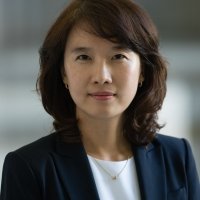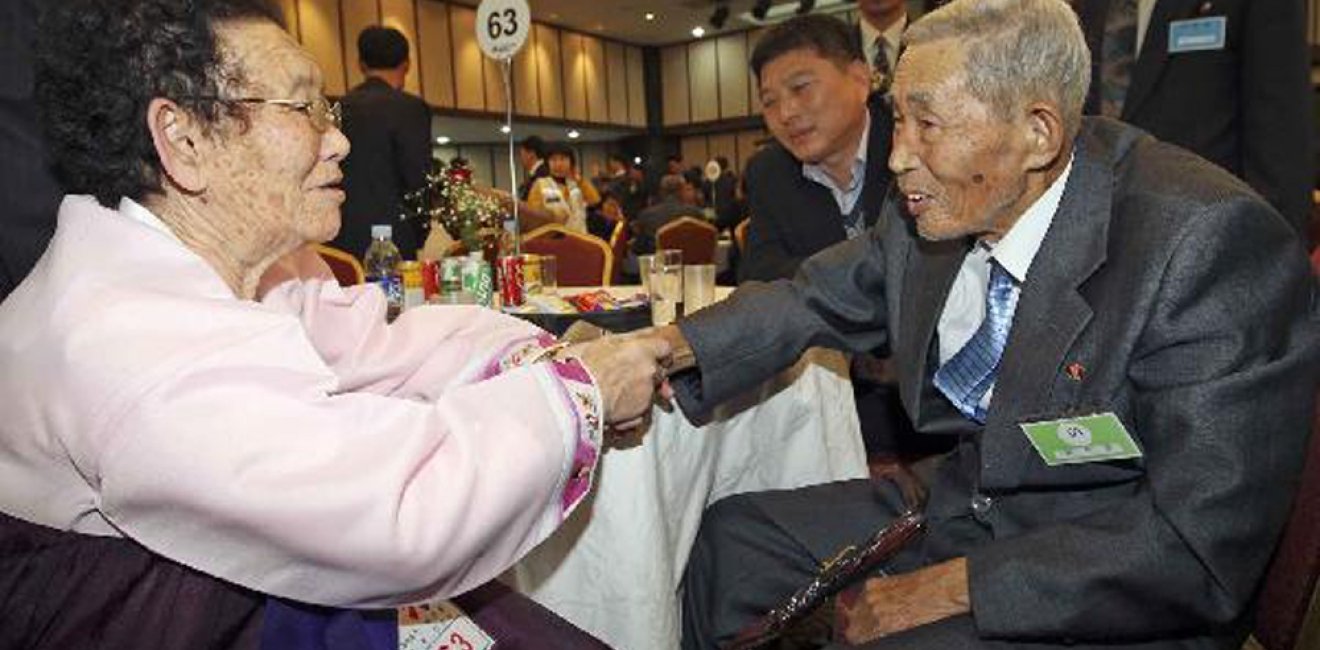
A blog of the Indo-Pacific Program
For the first time in three years, family reunions were held again in August at North Korea’s Mount Kumgang resort just across the border, granting some 90 selected families from South Korea and North Korea to meet long-lost kin. With joy and disbelief, a South Korean mother in her 90s embraced her 71-year-old son from the North for the first time since she lost hold of him in the chaos of the Korean War when he was 4. A father who never had a chance to see his unborn son got to see him for the first time and to marvel at the resemblances between father and son, now in his 60s.
And there are tens of thousands more Korean families—separated during the three-year Korean War and still divided by the Demilitarized Zone 65 years after the two sides signed an Armistice Agreement calling a cease-fire to the unresolved conflict—still waiting for their reunions.
But time is fast running out for them. South Korea and North Korea so far have held 22 such reunions since 1985. At this pace, if reunions are granted for 100 families once a year, it would take another 570 years for the remaining 57,000 applicants to see their families. And the pool of applicants is declining rapidly, with thousands passing away every year of old age and illness. More than half of the 130,000 who initially registered for reunions have already passed away, according to the Ministry of Unification’s database for separated families. Over 60 percent of the applicants for family reunions this year were 80 years or older, with the oldest member being 101.
Reuniting separated families is a matter that must be addressed with urgency and with greater cooperation between North Korea and South Korea.
Then what is holding North Korea back? There are a number of reasons North Korea balks at family reunions.
First of all, North Korea takes a political approach to this fundamentally humanitarian issue.
First of all, North Korea takes a political approach to this fundamentally humanitarian issue. With South Korea surpassing the North in almost all aspects—except for nuclear arms—Pyongyang does not have much leverage over Seoul. And well aware that family reunions are among the most important inter-Korean projects sought after by the South, North Korea is not inclined to give away this valued bargaining chip easily.
But perhaps just as crucial to North Korea is the fear of South Korean influence seeping in through more regular and direct contact between its citizens and their relatives from the South. It is clear that the South Korean members of the same family appear much wealthier, freer, and even look younger than their peers in the North, which could make North Korean families question why and they may be envious of their better-off relatives in the South.
For such reasons, North Korean authorities not only prep the families with ideological sessions before the reunions but also provide men and women with suits and dresses, and even gifts to offer to their South Korean families during the reunions so as not to appear lacking.
Lastly, but more realistically, the logistics of holding such large-scale family reunions is no easy task to undertake. For a country suffering from a dearth of resources, let alone a comprehensive digitized database of its population with relevant details, even finding out and locating specific family members requires burdensome manual effort and time for its personnel, who otherwise could be used for more productive purposes, from North Korea’s perspective.
The logistics of holding such large-scale family reunions is no easy task to undertake...
While it has never been easy to get Pyongyang to agree to family reunions, typically viewed as only tedious work with not much to gain politically nor economically, a fundamental change in its approach to this important humanitarian issue is necessary before it is too late and the remaining first generation of immediate separated families passes away.
If holding more face-to-face meetings is an overwhelming project, North and South Korea should work out a modified format, location and method of family reunions that is acceptable to both sides. Telecast family reunions could be an option; there have been seven such cases in the mid-2000s. Also, allowing letter exchanges, if not hometown visits, would be a rudimentary but much valued means of communication.
However, what is of greater importance is for North Korea to recognize the value of showing good will on the issue of separated families. While inter-Korean relations have warmed considerably this year, Pyongyang’s reluctance or unwillingness to resolve this relatively easy and extremely important humanitarian issue with expediency will only work against the regime and make South Koreans more skeptical of North Korean’s sincerity on improving inter-Korean ties. Moreover, with little or slower-than-expected progress on the denuclearization front, it will only reaffirm the already cynical attitude of many when it comes to North Korea keeping its word.
If North Korea’s Kim Jong Un aspires to be regarded as a more normal, reasonable leader in the international community, he should demonstrate that North Korea is sincere about wanting to change its ways for the betterment of its people. He should listen to the desperate wishes of the tens of thousands of separated families longing to meet their loved ones at least once before their time is up.
Though watching the family reunions over the television this time, I still felt as if I could see and hear the sobbing of the separated families, clinging to the windows of the buses for one final glimpse or touch of their loved ones before departure. And the desperate words of a South Korean elderly gentleman yelling, “This is insane! It doesn’t make any sense! Why do we have to separate again?” still ring loud and clear in my ears.
Image: Divided Families Foundation/Wikimedia
Soojin Park is a public policy fellow at the Woodrow Wilson Center. A former journalist, she served as deputy spokeswoman for South Korea’s Ministry of Unification from 2011 to 2016. She attended the last two family reunions in 2014 and 2015 as a member of the South Korean delegation in charge of the press corps and communication with North Korean authorities.
The views expressed are the author's alone, and do not represent the views of the U.S. Government or the Wilson Center. Copyright 2018, Asia Program. All rights reserved.
Author

Former Deputy Spokesperson, Ministry of Unification, Republic of Korea.

Indo-Pacific Program
The Indo-Pacific Program promotes policy debate and intellectual discussions on US interests in the Asia-Pacific as well as political, economic, security, and social issues relating to the world’s most populous and economically dynamic region. Read more


Hyundai Motor-Korea Foundation Center for Korean History and Public Policy
The Center for Korean History and Public Policy was established in 2015 with the generous support of the Hyundai Motor Company and the Korea Foundation to provide a coherent, long-term platform for improving historical understanding of Korea and informing the public policy debate on the Korean peninsula in the United States and beyond. Read more





